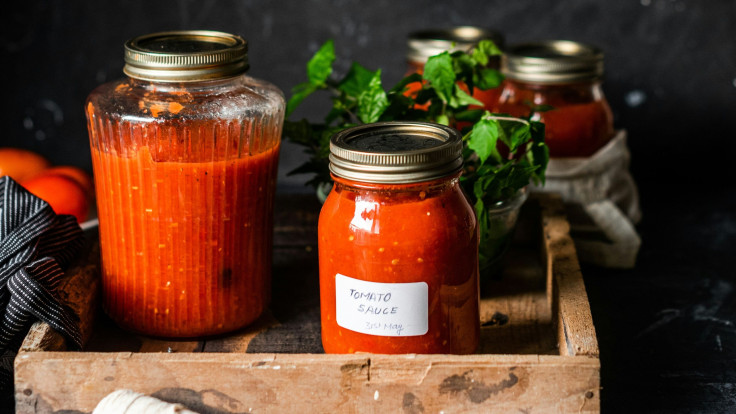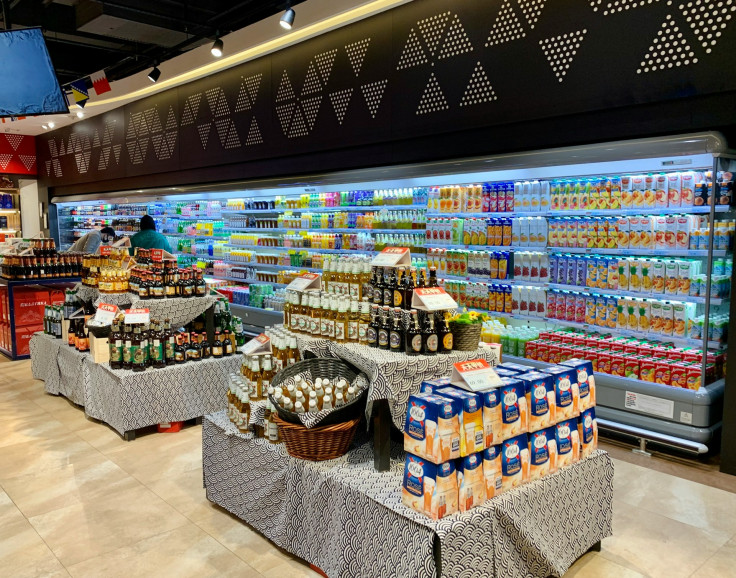Can Botulism Kill You? Here's Why The FDA Recalled Tomato Sauce Brands, Warns of Risk

KEY POINTS
- FDA recall: Tomato sauces pulled over botulism concerns
- What makes botulism so dangerous?
- How to stay safe and prevent infection
Check your pantries. On Monday, 3 November, the US Food and Drug Administration (FDA) announced a recall of several tomato sauce products from First and Last Bakery, LLC of Hartford, Connecticut, due to potential contamination with Clostridium botulinum — a bacterium that produces toxins responsible for botulism, one of the deadliest forms of food poisoning.
The affected products include:
- Original Marinara Sauce (Tomato & Basil)
- Original Traditional Pasta Sauce (Meat Flavoured)
- Original Puttanesca Sauce (Mildly Hot & Spicy)
Each comes in 26-fluid-ounce jars with a use-by date of September 2026. This recall is especially timely, as Holiday season celebration preparations will be soon underway.
I Have An Affected Product, What Do I Do?
If you purchased any of the recalled jars, do not use them. Choose fresh, properly processed alternatives or make your own sauces at home following safe canning guidance.
According to the FDA, the sauces were manufactured 'without an approved schedule process', meaning they may not have been adequately sterilised to eliminate C. botulinum spores. The recall applies to products sold at Big Y and Stop & Shop stores in Connecticut and Massachusetts on 22 September 2025. Customers who purchased these jars are urged to return them for a full refund and avoid consuming the contents.

What Makes Botulism So Dangerous?
Botulism is rare but potentially fatal, caused by toxins produced by Clostridium botulinum bacteria in low-oxygen environments — such as improperly canned, jarred, or preserved foods. The toxins block nerve functions, leading to muscle paralysis and respiratory failure if left untreated.
The World Health Organization (WHO) ranks botulinum toxins among the most lethal substances known, noting that even a few nanograms can be deadly. Symptoms typically appear within 12 to 36 hours of consuming contaminated food and may include:
- Fatigue, dizziness, and weakness
- Blurred or double vision
- Difficulty speaking, swallowing, or breathing
- Abdominal swelling and constipation
If untreated, paralysis can progress downward from the face to the limbs and lungs, potentially requiring mechanical ventilation. The illness can be fatal in 5–10% of cases, though survival rates improve significantly with early detection and treatment.

How to Stay Safe and Prevent Infection
Health officials urge anyone who suspects they've eaten the recalled sauce — or who experiences symptoms of botulism — to seek medical attention immediately. The US Centres for Disease Control and Prevention (CDC) provides antitoxin treatments, which can stop the toxin from spreading through the bloodstream if given early. Most patients recover fully with prompt care, though recovery may take weeks to months.
To reduce the risk of botulism:
- Avoid eating food from swollen or leaking jars or tins.
- Store and refrigerate homemade sauces properly.
- Follow safe canning and sterilisation procedures.
- Never feed honey to infants under one year old, as it may contain C. botulinum spores.
Botulism outbreaks are uncommon but require swift public health responses to prevent further cases. Both the FDA and WHO stress that proper sterilisation, refrigeration, and hygiene during food preparation remain the most effective defences against this life-threatening illness.
As investigations continue, the recall serves as a reminder that even everyday staples like pasta sauce require strict safety standards to keep dinner tables safe worldwide.
© Copyright IBTimes 2025. All rights reserved.



















